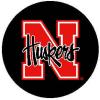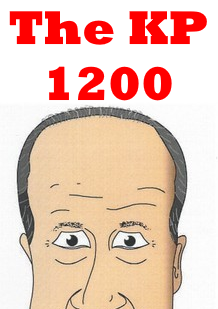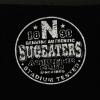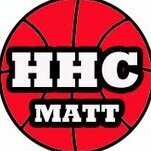Then & Now: Fred Hare
Compiled By Dave Brandon (Photo Courtesy Fred Hare)
Hare played at Nebraska from 1965-1966 under the late
Joe Cipriano (1964-1980, 253-197), and is likely best
remembered for his follow-up basket as time expired to
beat #1 Michigan in 1965.
A 6’2”
“jack of all trades” forward from Omaha, Hare led the
Huskers in scoring (15.2 PPG) and rebounding (7.4 RPG)
in 1965, and later went onto a storied career with
several of the Harlem teams (Clowns, Magicians, Aces,
and Globetrotters).
Hare is
our latest guest in this Sunday's version of "Then &
Now."
HHC: Thanks
for joining us. You are a charter member of the Nebraska
High School Sports Hall of Fame (1994) and helped lead
the 1963 Omaha Tech basketball team to the state
championship. Basketball historians call that team one
of the best of all time; agreed?
FH:
Absolutely. I think with a team like that, we could have
beaten the Boston Celtics. As a matter of fact, that’s
what Coach Neal Mosser used to tell us. In practice
before a game, he’d say, “You play like you do in
practice, you’ll beat the Boston Celtics.”
That was
a very, very unique team, and while Neal wasn’t the
easiest coach to get along with, he was real tough and a
great coach. So I told the guys, “If you don’t like
Neal, don’t play for him. Because if you don’t like him,
we’re not going to win ball games.”
And
that’s the problem that we had for two years, because I
believe that we did win it (state) in 1962 even though
it wasn’t given to us against Lincoln Northeast.
HHC: Following the 1963 season, you were
named the Nebraska High School athlete of the year by
several publications. You ultimately chose to play
basketball at Nebraska, but who else was recruiting you
besides the Huskers?
FH: All the teams in the country. There
wasn’t a college in the United States I didn’t get an
offer from. UCLA, Bradley, Drake, Minnesota, Oklahoma,
Syracuse, Baylor, and even the Naval Academy. Just about
any college you name was interested.
HHC: What made you choose Nebraska?
FH: Well, I didn’t have any idea that Joe
Cipriano would be the coach when I committed. Actually,
I signed because I thought Neal Mosser, my high school
coach was going to get the coaching job, but at the last
minute after I signed the contract, they decided to
bring someone out of Idaho (Cipriano) instead of Mosser,
who was one of the winningest coaches in Nebraska
History.
Another
reason I came to Nebraska was that my mother was sick
with cancer, diabetes, and arthritis before ultimately
passing in 1967, but Nebraska was close to home, but not
to close like Creighton. I grew up three blocks from
Creighton.
I loved
the campus, too. Nebraska really has a beautiful campus
and atmosphere, and there’s nothing like being in your
home state.
HHC: In your own words, describe Joe
Cipriano, both as a coach and man?
FH:
Joe Cipriano was a great person and a great friend. He
had problems coaching in the sense that he had such a
diverse group of guys on the team from Chicago, New
York, California, and Norfolk, that I don’t think he had
the experience of coaching a lot of different
ballplayers or of putting the right combination in. But
on a one on one basis, Joe was a great person.
I do
think he was concerned a little too much of what Tippy
Dye and the alumni would think at times, but that wasn’t
really Joe’s fault. At the time, Nebraska would only
allow two African-Americans out on the court at the same
time, and it was either me and Grant Simmons, or me and
Nate Branch, or Stu Lantz, and that kind of put a burden
on us, because when we’d go to play Kansas or Michigan,
they had four or five blacks on the team that were much
bigger than us, too.
But Joe
had a lot of compassion for me, and I really liked him
and his family. He was a big help to me when I
ultimately went to try out for the Phoenix Suns a few
years later. They had asked him why I quit at Nebraska,
and he told them it was because of family problems, and
ironed out any problems him and I may have had.
HHC: Talk
about what it was like playing in the Coliseum. Was that
a big home court advantage, and how did it compare to
other venues in the conference?
FH: It was the worst in the conference, to
be honest. The arena was cold, and we used to call it
“The Barn.” It seemed like during practice it took you
forever to get warmed up.
It was
an old hard floor with a high ceiling, and most other
places like Kansas, Oklahoma, and Missouri had
beautiful, nice coliseums or gymnasiums. Our uniforms
were the worst, too, although we were proud of them.
But I
loved the “Old Barn”, and it didn’t make a difference
where we were playing, although when I was at Nebraska,
it didn’t seem like we ever had a home court advantage.
Rather, it seemed like the referees were always against
us, and it seems like the crowd was. One time I was
booed during the Michigan game, but we won it anyway, as
you know.
I had a
tendency to teach the ball players to make your own home
court advantage by being in shape, running your plays,
and not giving the referees any problems. I never paid
attention much to the crowd, but I could never really
understand home court advantage. I mean, we certainly
didn’t have one against Michigan.
HHC: Since you bring up that Michigan
game, lets talk about it. Your first year at Nebraska
was spent on the freshman team in 1963-1964, and your
first year on varsity was 1964-1965, when your team went
10-15 (5-9, T-6th). Perhaps the biggest shot in Nebraska
Basketball history was made by you that year, as you hit
an over the head and backwards buzzer beating layup to
defeat #1 Michigan and Cazzie Russell (74-73). In your
own words, describe the last possession of that game and
what that was like?
FH: That was the most unique game I ever
played in, especially in respect to the crowd, which had
booed us earlier in the game.
And
during that whole week, it was in the Lincoln Journal as
“the night of the Wolverines.” But that last shot, it
wasn’t designated that I shoot it. I told Grant
(Simmons) to take the ball out, and I told him that I
was, “Going to pretend that the game is over since we
only have 2 seconds left, and I’m just going to drop my
hands and walk toward the Michigan basket and act like
I’m disgusted.”
And
that’s the only way I knew to shake that guy (Russell),
because he was guarding me so tough all night that they
couldn’t hardly get the ball to me. So Grant threw the
ball to me just a few feet away from the half court
line, and I shot it right away with my typical high arch
so I could see where it was going to hit and come off.
I had a
tendency to always follow my shots so I did that, and I
noticed all the guys from Nebraska were standing on one
side, and all the guys from Michigan on one side, so
when I ran from half court, I saw a guy getting ready to
rebound and went over him and got it before he caught
it. And I didn’t have much time to stuff it and there
was a hand in the way, so I just took it while in the
air and flipped it over the back.
That was
so exciting and such a great way to end that game after
the press, the fans, and even some of my own teammates
and coaches didn’t believe we were going to win.
HHC: Was that your favorite game at
Nebraska?
FH: Yeah, it was, but that’s not the best
or favorite game I’ve ever played. I think the best was
when I was with the Harlem Clowns in Pomona, California.
We were
down by 10 points one night with about 5 minutes to go,
and I stole the ball 6 times in a row, and it was
similar to the Michigan game. All the guys on the team
used to call me “the Omaha Kid,” because they didn’t
think people from Omaha could play basketball.
And then
there was the performance in the Phoenix camp, too,
where I averaged 25.0 PPG and 11.0 RPG. Those three
times between the Phoenix camp, the Pomona game, and the
Michigan game were my most exciting.
HHC: 1965-1966
was your last full year with the Huskers, and the team
finished 20-5 (12-2, 2nd) and ended its fifteen straight
seasons of losing. What do you remember about that year?
FH: I remember it was a dismal year,
because some people within the program didn’t want me to
have a knee operation I needed prior to that season
because they felt it could keep me out longer. I ended
up having it anyway and played with tape from head to
toe that whole year like a warrior, and also with
cortisone shots before each game in my knee. I gutted it
out but it felt like some people were mad at me for
having the surgery, which hurt my minutes.
HHC: 1966-1967
was your last season on the team, as you left after the
second game at Wyoming (102-98 loss). What led to you
leaving?
FH:
It was the culmination of everything, from not being
able to play the minutes I had felt I deserved to being
taken out of games when I felt I shouldn’t.
I really
enjoyed the University of Nebraska and I can tell you
that I don’t have any bitterness. However, I certainly
don’t think I’d do it again, but there was a guy and old
teammate of mine from high school named Big Bob Brown
who said, “You didn’t make a mistake by going to
Nebraska. You just stayed too long.”
And Neil
Mosser, my old high school coach told me, “It doesn’t
matter where you go, as long as you do the best you
can.”
Nobody
considers me a quitter or failure because I opened up
the way for a lot of young people, I think, and
especially African-Americans in Omaha, from helping them
find a place to play and practice such as churches and
Creighton to giving them someone to look up to.
I had to
perform Dave, because I played ball to get my Mother and
siblings out of the ghetto, and I did my best and always
gave it my all, and I think that’s why people respect me
and don’t consider me a quitter. At least that’s what I
hope they think.
HHC: Have you stayed in touch with any of
your former teammates or coaches, and do you still
follow the program at all?
FH: No. Matter of fact Dave, I didn’t stay
in touch with anyone. My Mother passed on in 1967, and
after the funeral, I sold all my belongings, took a
plane to Mexico City, and enrolled at the University of
Americas, which was an American team, but down there,
you have 80% natives, and more natives on the court more
than Americans. So it would always be 2 Mexicans and 3
Americans.
HHC: And where
did you go from there?
FH: Well, I did that for a year, and then
I learned that I couldn’t graduate because I had to come
back to the United States to get all my credits to
transfer.
So after
Mexico, I ended up back in the United States, and was
eventually cut from the Phoenix Suns because nobody knew
who I was. I literally just walked on the court there
and wasn’t invited, so they made it a goal to shut me
down.
But
during that training camp, I averaged 25/11 and they
recruited guys to come to that camp to stop me, and by
playing there, I opened up some doors.
After
the Phoenix camp, the Lakers heard of me from Neil, my
high school coach, who knew somebody out there, and they
wanted me to go to Dallas and play in the ABA, but I
never went, because I was tired and didn’t feel like
it.
So, I
decided to play with the Harlem Clowns while I thought
about what to do with my professional career, and when I
got there, Nate Branch, my former Husker teammate and
roommate was there.
I did
that and various other Harlem teams for a while, and
then I went up to Canada and played in the Canadian
League.
My
brother got killed shortly after, so I came back to the
States for a while longer before going back to Mexico
and playing four seasons, and then when I came back, Bob
Cousy called me after that last game in Mexico and had
arranged it so I was supposed to go to either Dallas and
play in the ABA or play with the Globetrotters. But I
decided I wanted to wait and try to come back to Omaha
or Kansas City, since they would someday soon have a pro
team.
Turns
out I got wiped out in a serious car accident in Denver,
Colorado in 1970. I had contusions of the liver, spine
problems, and I was all crippled up, to tell you the
truth. After the accident, I notified the director of
the Kansas City/Omaha Kings what had happened.
I was 37
at the time of the accident, and still got an offer for
a contract to play for Kansas City, but I was so far
behind and so tired that I didn’t do it.
HHC: You have a new book out called "The
Best of the Best", which is a biography about both
basketball and life, and its available through your
website at
http://www.fredhare.com/. Talk about this book and
what motivated you to write it?
FH: I’ve always wanted to give back what I
know. The secrets, which are really not secrets, but
things that never cross your mind, are in there about
basketball.
For
example, I always wondered why such guys as Bob Boozer
and all the other guys that came through Omaha Tech
never won Neil a championship. I was under the bleachers
before I played there at their practice one day
watching, and I could see why he didn’t. They were often
racially divided and would fight and battle each other
in practice. And I thought to myself, “How are you going
to beat Benson or North when you are beating
yourselves?”
I also
know that the way I added 6 inches to my vertical every
year during high school was by wearing braces that my
Mom had made me around my ankles. They were weights and
held me down.
Or the
fact that as a kid, I wore thick rabbit gloves and my
Mom would make me shoot around outside in the middle of
the winter while my brothers laughed at me. I was
horrible at shooting, but over time, when I’d take them
off after hours of having them on, I had the keenest
sense of touch and I could shoot extremely accurate. It
was scary, to be honest. So I started wearing gloves and
making everything I did harder so that it’d make it
easier later.
I also
wrote the book because I wanted to give back to society
and my fans, and as a tribute to the talent that God
gave me.
I wanted
to give back and tell of all the beautiful experiences
and haunting memories from when I played. I’ve been to
four or five other countries, and I said, “What am I
going to do with this now?”
I read a book by Jerry Masters where he said that I
wasn’t as good as my one time high school running mate
Ronnie Boone. And that didn’t upset me, but it touched
me. I called Jerry on the phone right away after that
and I said, “You know the score. I thought it was
supposed to be a high school book for athletes. Ronnie
Boone didn’t break any records in high school, and
neither did Bob Gibson.”
So I
asked him why he put that statement about me in there
and he says, “I put that in there because I knew that
someday, you’d read it. I had tried to reach you and
nobody knew where you were for eight years.”
But that
call prompted me to realize what I had and to put it
into words.
In
summary, writing that book was for the Lord, and part of
a promise to my Mother that I’d finish college, which I
did in part through all the writing classes I took to
write it.
I’d
never opened up before, and I wanted to get my legacy on
paper before I went to the grave, which is the richest
place. I wanted to have these same questions asked that
you’ve asked me today. It’s the joy of giving back.
HHC: And I see that you are currently
represented by Celebrity Direct Entertainment in Port
Charlotte, Florida. That brings us to the now of "Then &
Now." What is Fred Hare up to these days, and what are
his plans for the future?
FH: At this time, I spend most of my time
in my electric wheelchair, which is fun and like a
vehicle (Laughs). My legs have entirely gone, so I’m
involved in artwork now.
I’ve got
a wonderful caregiver named Tonya Ballard, and she takes
care of me. I had open-heart surgery about three years
ago, I had two heart attacks in Mexico, and two of my
sons were born in Mexico, so I was helping them out in
the art business when that happened.
But
anyway, I am for the first time in my life, for the last
two years anyway, enjoying peace and quiet, and not
worried about any expectations from basketball or my
children.
I’m
living in Denton, Texas now.
HHC: If we set you up an e-mail account at
fredhare@huskerhoopscentral.com , would you be
willing to take some e-mails from our readers?
FH: Yeah definitely, but I’ll have to have
my caretaker type for me, but I’d love that. Send me all
the Husker fans e-mails, I’d really appreciate it Dave
and it’d mean a lot.
HHC: Great! Thanks a lot for your time,
and anything else you'd like to add?
FH: Yes. There’s not an answer you can’t
find in the bible. Everything I did, I did it in the
spirit. And basketball wise, I’ve noticed that God
didn’t make you left handed or right handed. He made an
individual. I mean, what hand does a monkey use? He uses
them both equally.
I try to
teach young people now to start at an early age, using
your left hand, because you defend someone that’s even
handed. There’s no defense for them.
And one
other thing I’d like to say is that I do appreciate the
opportunity to talk and tell my story of things after so
long of the record not being set straight.
Thank you Dave for all you do.<script type="text/javascript" language="javascript">






Recommended Comments
There are no comments to display.
Join the conversation
You can post now and register later. If you have an account, sign in now to post with your account.